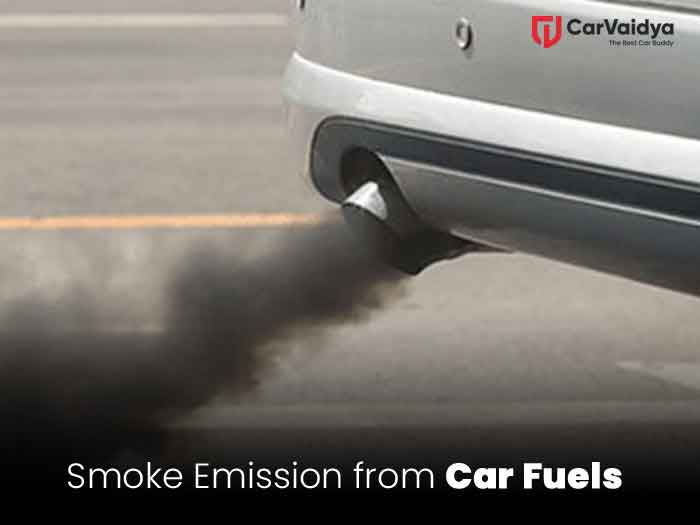Automobiles have become an integral part of modern life, providing convenience and mobility to millions of people worldwide. However, one common issue that car owners often encounter is the emission of smoke from their vehicles' exhaust systems. This phenomenon raises concerns about environmental pollution and the overall health of both individuals and the planet. In this article, we will delve into the reasons behind the emission of smoke from car fuels, exploring the various factors contributing to this issue and potential solutions.
Combustion Process
The combustion process within a car engine involves the interaction of fuel and air to generate the necessary energy for the vehicle to operate. Ideally, this process should result in a clean and efficient release of exhaust gases. However, when the combustion is incomplete, unburned fuel particles can be emitted as smoke. Several factors can affect the combustion process, leading to smoke production.
Poor Fuel Quality
One of the primary reasons for smoke emission is the quality of the fuel used. Contaminated or adulterated fuel can contain impurities that hinder the combustion process, resulting in the release of smoke. Car owners must use high-quality, clean fuel to ensure optimal engine performance and minimize environmental impact.
Engine Wear and Tear
As a car ages, its engine components may experience wear and tear. This can affect the precision of the combustion process, leading to incomplete burning of fuel and the subsequent emission of smoke. Regular maintenance and timely replacement of worn-out parts can help mitigate this issue and improve overall engine efficiency.
Malfunctioning Injectors
Fuel injectors play a vital role in delivering the right amount of fuel into the combustion chamber. When injectors malfunction or become clogged, they can disrupt the fuel-air mixture, causing incomplete combustion and smoke emissions. Regular inspection and cleaning of fuel injectors can prevent this issue.
Air-Fuel Ratio Imbalance
Maintaining the correct air-fuel ratio is crucial for efficient combustion. If there is an imbalance, either too much fuel or too little air, incomplete combustion can occur, leading to the production of smoke. Modern vehicles are equipped with sophisticated engine control systems that regulate the air-fuel mixture, but any malfunction in these systems can result in smoke emission.
Faulty Emission Control Systems
Cars are equipped with emission control systems designed to reduce the release of harmful pollutants. If these systems malfunction or fail, it can contribute to increased smoke emission. Regular inspections and adherence to emission control standards can help identify and rectify issues with these systems.
Incorrect Fuel Injection Timing
The precise timing of fuel injection is crucial for optimal combustion. If the fuel injection timing is incorrect, it can lead to incomplete burning of fuel and the generation of smoke. This issue may be addressed through proper tuning and adjustment of the fuel injection system.
Excessive Oil Consumption
A car engine that consumes excessive amounts of oil may experience increased smoke emission. Oil can enter the combustion chamber and mix with fuel, resulting in incomplete combustion and the production of smoke. Identifying and fixing the root cause of oil consumption is essential to mitigate this issue.
In conclusion, smoke emission from car fuels is a multifaceted issue with various contributing factors. Addressing this problem requires a combination of preventive measures, regular maintenance, and timely repairs. Car owners can play a crucial role in reducing smoke emission by using high-quality fuel, adhering to regular maintenance schedules, and promptly addressing any signs of engine malfunction. Additionally, advancements in automotive technology continue to contribute to cleaner and more efficient combustion processes, ultimately minimizing the environmental impact of car emissions.
Read some other articles related to car service
Safety Measures During Accidents Protecting Yourself From Airbag Injuries
How CarVaidya Made Car Inspection Process Easy?
Car Service When And How To Service Your Car?


0 Comments